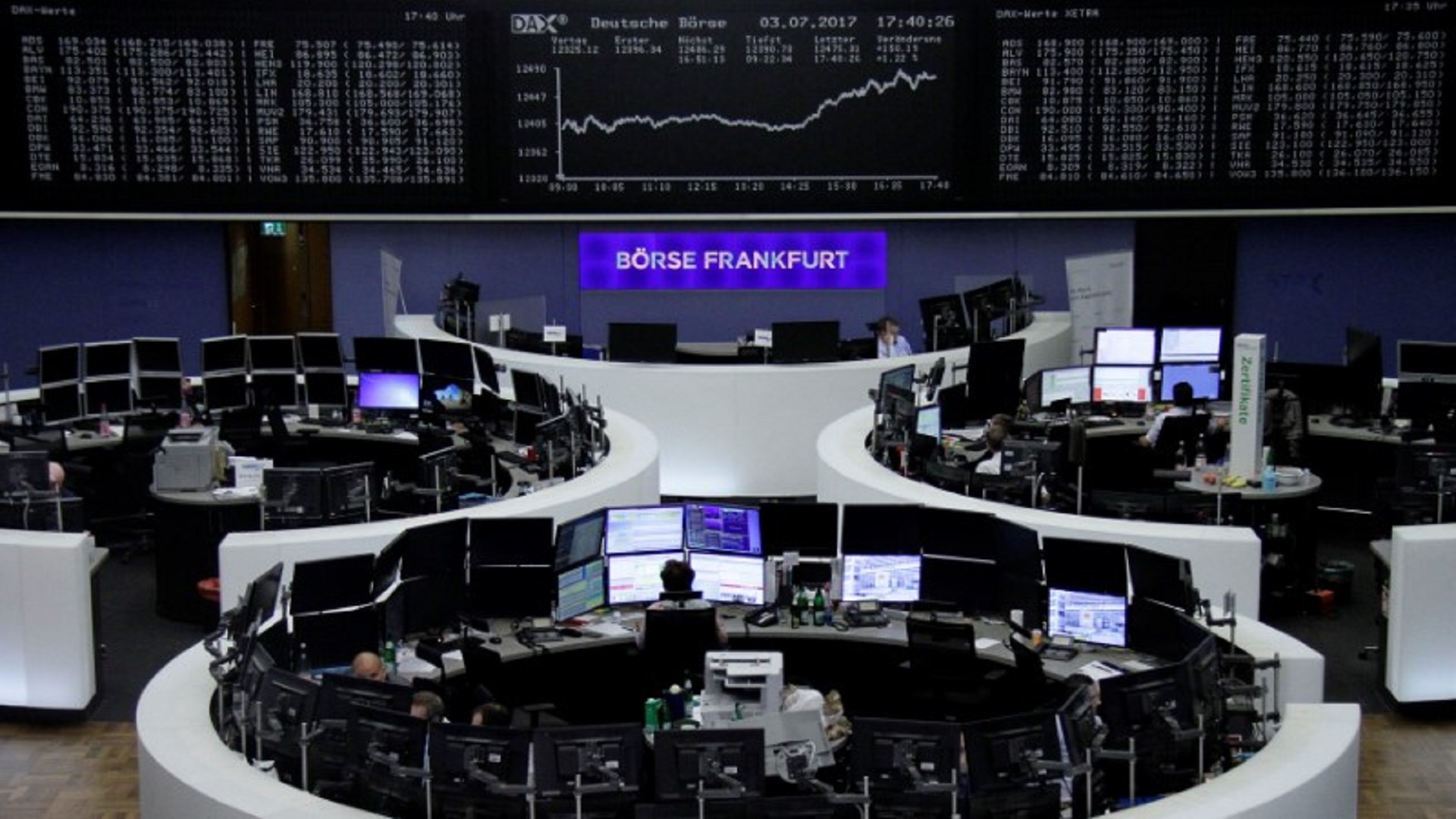Image: Global shares stumble, oil steadies after flying start to second half

By Marc Jones
LONDON (Reuters) – World shares pulled back and bonds and gold regained favor on Tuesday as a long-range ballistic missile test by North Korea and July 4 holidays for U.S. markets dampened risk appetite.
Asian shares were pushed lower and South Korea’s won slid to a 16-week low after the North’s missile landed in Japanese territorial waters amid assertions from Pyongyang that it could now strike “anywhere in the world”.
Europe saw a modest drop too as the pressure to lock in profit after Monday’s biggest jump in over two months outweighed a recovery during the day of commodity stocks as oil thrust upwards again after an overnight wobble.
Traditional safety plays fared well amid the caution.
The Japanese yen and gold were both higher, as were European bonds and Treasuries, which have been clobbered by recent signs that the era of emergency stimulus and ultra low interest rates might be coming to an end.
The ECB’s chief economist said healthier inflation remained “crucially contingent” on “very easy” financing conditions, while Sweden’s central bank sounded reassuringly cautious even as it hinted at tighter policy going forward,
That took the wind out of the Swedish crown, which had been the best performing global currency over the last week. The Australian dollar also took a tumble as its central bank steered clear of rate hike talk at its latest meeting.
Credit Agricole FX strategist Manuel Oliveri said the Swedish Riksbank’s move showed how wary central banks remained about their currencies, while the day’s other main focus was North Korea’s posturing.
“North Korea is continuing to provoke,” he said. Although markets were now used to these kind of events, he added: “It is a bit more important as it came ahead of the G20 meeting this week.”
Leaders from the Group of 20 nations are due to discuss steps to rein in Pyongyang’s weapons programs when they meet in Germany.
U.S. President Donald Trump wrote on Twitter: “North Korea has just launched another missile. Does this guy have anything better to do with his life?” This was an apparent reference to North Korean leader Kim Jong Un.
With the market quiet in the absence of U.S. trading, the dollar mainly drifted.
It lost 0.2 percent on the yen to leave it buying 113.19 yen and dropped 0.5 percent on the Canadian dollar, but made almost as much back against the Aussie dollar and Swedish crown and inched up to $1.1348 to the euro.
On Monday the six-currency dollar index had seen its biggest jump since the start of March, after a stronger-than-expected rise in the June Institute of Supply Management (ISM) national factory activity index had also propelled the 10-year Treasury yield to its highest since mid May.
EMERGING STRAINS
There were increasing signs that alongside the geopolitical jitters, higher global borrowing rates and the dollar were starting to pressure emerging markets after their stellar start to the year.
MSCI’s widely-tracked emerging equity index saw its sharpest one-day drop in nearly three weeks and most Asian currencies were weaker.
The won is now down 3 percent over the last two weeks, the Indonesian rupiah has erased weeks of gains in the last two days and the Philippine peso is stuck near multi-year lows.
“The bigger-picture driver for these movements you are seeing in emerging market currencies, at least over the past two weeks, are signs of a more hawkish turn from central banks – including the ECB, Fed and the Bank of England,” UniCredit EM FX analyst Kiran Kowshik said.
The next major data point is likely to be Friday’s monthly U.S. jobs report. China’s central bank, meanwhile, warned on Tuesday that its economy still faces “relatively big” downward pressure and that parts of its financial system lacked sufficient regulation.
MSCI’s broadest index of Asia-Pacific shares outside Japan ended down 0.6 percent.
Japan’s Nikkei surrendered gains to end 0.1 percent down, South Korea’s KOSPI closed 0.6 percent lower, though Hong Kong was hardest hit by the regional jitters as it slumped as much as 2 percent at one point.
Tokyo, reacting to the North’s missile test, strongly protested what it called Pyongyang’s clear violation of U.N. resolutions. Japanese Prime Minister Shinzo Abe said he would ask the presidents of China and Russia to play more constructive roles in efforts to stop Pyongyang’s arms program.
Commodity markets also saw a shift. Gold was shining at $1,224 an ounce while oil managed to steady near $50 a barrel although it still looked on course for its first dip in nine sessions which have amounted to its longest run of gains since February 2012.
U.S. crude was flat at $47.00 a barrel while global benchmark Brent dropped fractionally to $49.64 as traders cashed in some gains from a 3.7 percent leap – its biggest in one day since December 2016 – on Monday.
“We see a recovery for oil prices in H2 2017 from current levels, with OPEC production cuts, a slowdown in global supply growth and seasonally firming demand driving up prices,” BMI Research said. However, it added that “large-volume supply additions will keep price growth flat year-on-year in 2018”.
(Additional reporting by Nichola Saminather; Editing by Mark Heinrich)
Copyright 2017 Thomson Reuters. Click for Restrictions.


